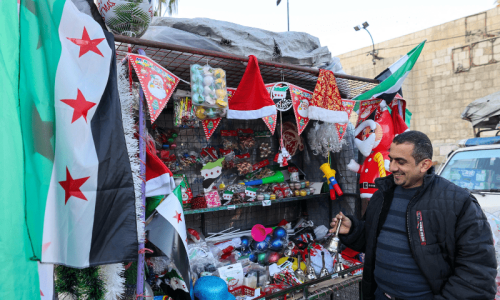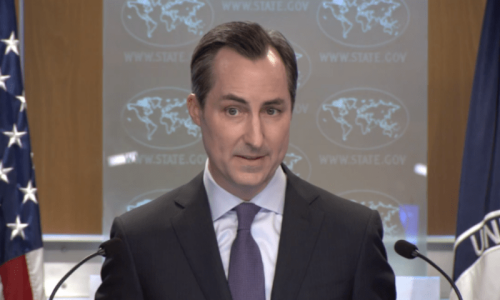WASHINGTON, Dec 21: The action taken by the Bush administration late on Thursday against the Lashkar-i-Tayyaba and Umma Tameer-i-Nau (UTN), an organization linked to two Pakistani Atomic Energy Commission scientists, is seen here as being largely symbolic, but it is considered likely that the Lashkar may also soon be placed on the list of officially designated terrorist groups.
President George Bush has blocked the financial assets of the Lashkar and UTN, but since neither has assets here, the move is meant more as a signal directed at both India and Pakistan.
India had been complaining ever since last week’s attack on the Indian parliament building that the United States had not taken a firm stand against so-called Pakistan-based militancy in Kashmir, and Thursday’s decision is meant to soothe Indian sensibilities and prevent an India-Pakistan flare-up that may divert attention from the campaign against Al-Qaeda.
At the same time, it is a firm hint to the Musharraf government to take action against extremist groups based in Pakistan or having strong affiliations in the country. It is believed that in his telephone conversation with General Musharraf on Wednesday, Secretary of State Colin Powell had informed the general in advance of the action against the Lashkar and UTN, which is alleged to have supplied information on nuclear weapons to Al-Qaeda.
The only organization with ties to Kashmiri militancy on the US State Department’s list of designated terrorist organizations so far is Harkatul Mujahideen. But the Lashkar and Jaish-i-Mohammad have been on a “Watch List” for some time.
The Lashkar is described in the official Patterns of Global Terrorism report issued last April as the “armed wing of the Pakistan-based religious organization, Markaz Dawa-wal-Irshad, a Sunni anti-US missionary organizations formed in 1989.” It is defined as “one of the three largest and best-trained groups fighting in Kashmir against India.” It has “several hundred members in Azad Kashmir, Pakistan, and in India’s southern Kashmir and Doda regions.”
It financial assets, according to Patterns of Terrorism, include donations from the Pakistani community in the Gulf, the UK, Islamic NGOs, and Pakistani and Kashmiri businessmen. It is possible that the US might put pressure on the Gulf and European countries to block the group’s accounts and clamp down on remittances sent to it.
Jaish-i-Mohammad, another organization that could be targeted for inclusion on the State Department’s list of designated terrorist groups, is described an Islamist group based in Pakistan that has rapidly expanded in size and capability since Maulana Masood Azhar, a former ultra-fundamentalist Harkatul Ansar leader, announced its formation in February.
Lashkar-i-Tayyaba was characterized by President Bush on Thursday as a “stateless sponsor of terrorism” in remarks in which Mr Bush had underlined US desire to protect Indian democracy. But he had also said the organization wanted to destroy relations between India and Pakistan and “undermine” President Musharraf.














































Dear visitor, the comments section is undergoing an overhaul and will return soon.